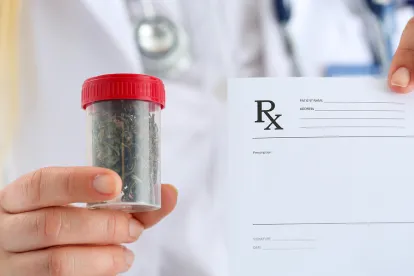Notwithstanding numerous restrictions limiting access to many resources during the ongoing coronavirus (COVID-19) pandemic, marijuana users in states where medicinal and adult use is legal may still have access to cannabinoid supplies. Even as states, counties, and municipalities increasingly restrict or shut down business activities to stem the spread of the virus, many jurisdictions will keep medical marijuana dispensaries open as “essential” businesses like pharmacies and grocery stores.
Medical Marijuana Dispensaries Deemed “Essential” Businesses
Shelter in place orders and other “pause” mandates have been implemented from California to Illinois to New York, shutting down all businesses and jobs except those considered “essential” for the public’s safety, health, and well-being. As with other matters of public policy, the types of businesses considered “essential” and exempt from the restrictions vary by jurisdiction.[1] However, as business groups scramble to determine whether they are “essential,” the medical cannabis industry has will generally be able to operate – albeit with some changes in support of COVID-19 considerations.
Public health officials throughout California, including in Los Angeles, San Francisco, Santa Cruz, Monterey, and Contra Costa counties have all affirmed that marijuana businesses will not be closed. Similarly, Connecticut, Illinois, Maryland, Massachusetts, Michigan, Nevada, New Jersey, New Mexico, New York, Ohio, and Pennsylvania have declined to urge or require licensed marijuana businesses to shut down, generally because they fall under agricultural or medical industry exemptions.
Marijuana dispensaries are being treated like pharmacies in part because industry representatives, providers, and patients have reminded policy makers of the importance of access to marijuana. Marijuana industry leaders reason that cutting off access to medical marijuana, where legalized, would harm patients and potentially force them to acquire marijuana on the black market, where the products may contain pesticides and other components that may endanger patient health. Additionally, guaranteeing uninterrupted access to marijuana may prevent panic-buying, bottlenecks in the supply chain, and crowded dispensaries. This has already been reported in some states where guidance was unclear or late in coming.
Temporary COVID-19 Measures
While allowing dispensaries to remain open, state and local governments have taken other precautions in response to the ongoing coronavirus pandemic. In Maryland, regulators have instructed dispensaries to suspend the use of “sniff jars”—containers full of marijuana flowers that customers may smell—and over-the-counter interactions. To decrease person-to-person contact and promote social distancing, states including Colorado, Illinois, Maryland, Massachusetts, Michigan, Nevada, New Hampshire, New Mexico, Oregon, Pennsylvania, and Washington are permitting curbside pick-up for medical marijuana, have relaxed restrictions on delivery, and even encouraged patients to place larger individual orders.
It’s Work from Home, Not Work While Stoned
While the marijuana industry may be feeling some relief, continued access to marijuana may pose problems for other employers. As more companies implement work from home policies, there is an increased risk that employees may choose to use legal medicinal or recreational marijuana while “on the clock.” While perhaps difficult to police, employers may be able to reduce the risk by encouraging employees to maintain similar routines and work hours as they would when they are in the office. Clarifying work expectations and policies for newly remote workers is good practice regardless of COVID-19. It reminds them that all expectations for performance, behavior, and conduct are still in place – wherever they are working. Regular contact with remote employees can help an employer’s workforce stay connected and positive in these difficult times, while also discouraging those who might treat work from home days as they might a snow day.
[1] For example, California and New York have each provided lists and examples of businesses that will be considered “essential.”
*Michelle Wright with EBG Advisors, a Strategic Consultant not admitted to the practice of law, contributed to the preparation of this post.





 />i
/>i

